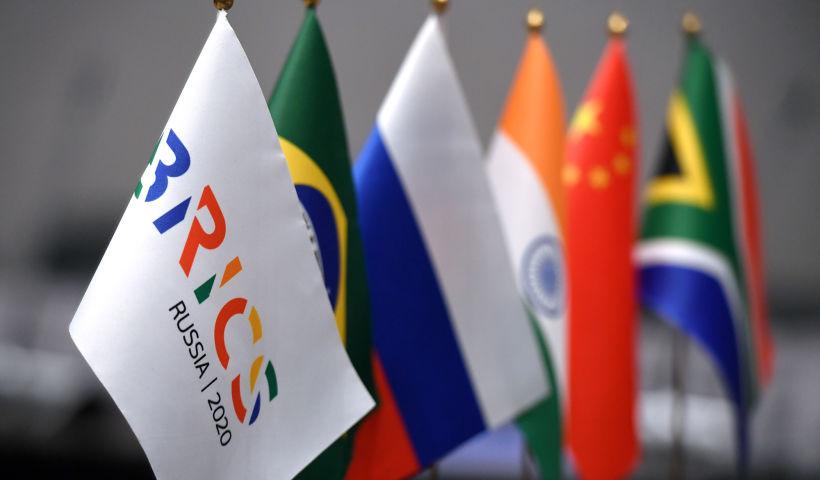BRICS vs Western ties: Why Armenia's bid for membership faces hurdles Stalled dreams
In Armenia, discussions have unexpectedly emerged about the possibility of Yerevan joining BRICS. At the opening of the international forum titled "New Horizons of Cooperation between Armenia and EAEU with BRICS and SCO", head of the “My Country, My Armenia" sociopolitical movement, Mher Avetisyan, expressed the view that Armenia's integration with BRICS aligns with the country's national interests. He noted that Armenia has substantial trade relations with Russia, as well as with the United Arab Emirates (UAE) and China.
"All these countries are BRICS members. This alone should be a compelling reason for our country to seriously consider integration with BRICS rather than with the EU," Avetisyan stated.
Armenian media, citing data from the Statistical Committee, enthusiastically report that from January to April 2024, Russia, the UAE, and China became Armenia's leading trade partners. According to the report, Armenia's total foreign trade volume for the first four months of this year has surged 2.4 times compared to the same period last year, reaching $13.7 billion. Notably, trade with China alone has increased by 61 per cent during this period.
Armenia’s desire to closely align with major powers within organizations like BRICS and the Shanghai Cooperation Organisation (SCO), which control nearly 70 per cent of global resources, is understandable. However, these ambitions are unlikely to materialize, as the chances of Armenia joining these organizations are minimal.

It is crucial to recognize that any nation seeking membership in BRICS, SCO, or analogous organizations must satisfy rigorous criteria and standards. Armenia's capacity to meet these requirements appears questionable.
The challenges are not solely due to the relative weakness of Armenia’s economy compared to the BRICS nations. Geopolitical factors, particularly Western influence, play a significant role. Armenia is increasingly becoming a satellite of the West, with its policies largely dictated by Western patrons. The West is unlikely to permit Armenia's accession to a structure led by Russia, with whom it has strained relations due to the Ukraine conflict, and which includes adversarial nations like Iran and China. Furthermore, unlike Azerbaijan, Armenia is unable to sustain itself as an independent state.
Additionally, following Azerbaijan’s and Türkiye's interest in joining BRICS, there has been increased interest in this organization from Yerevan. Clearly, Baku and Ankara have better prospects for joining BRICS and the SCO compared to Yerevan, thanks to their stronger economic and trade potential, as well as political support from China and Russia.
Despite Türkiye's NATO membership, China fully supports its full accession to BRICS and the SCO. Similarly, China backs Azerbaijan's elevated status within the SCO and its participation in BRICS.
Recently, Türkiye has been actively pursuing membership in BRICS as an alternative to its prolonged EU accession process. During a recent visit to China, Turkish Foreign Minister Hakan Fidan reaffirmed this stance, stating that BRICS represents a viable alternative to the European Union. For Azerbaijan, joining BRICS offers an opportunity to enhance its global standing. Close engagement with the five rapidly growing economies of BRICS could help the country strengthen its position in global politics.
In contrast, Armenia’s unresolved issues with Azerbaijan and Türkiye preclude the possibility of engaging in trade and economic cooperation with these countries within the BRICS framework.
The Russian political science community shares a similar view. For instance, in an interview with Caliber.Az, Yanis Yuksha, a well-known Russian lawyer and public figure, a corresponding member of the Russian Academy of Natural Sciences, has expressed skepticism about Armenia's prospects of joining BRICS. According to the expert, Armenia's desire to align more closely with the West makes it unlikely that the country will be able to join BRICS.

"It is clear that the Armenian leadership is unable to make independent decisions and acts solely under external instructions, taking into account the preferences of its Western patrons and the sponsors of Yerevan. Consequently, Armenia's accession to BRICS appears improbable, not only in the foreseeable future but potentially ever. Additionally, Armenia’s failures in its policy towards the Collective Security Treaty Organization (CSTO) further diminish its chances of joining BRICS.
Therefore, discussions about Armenia’s potential membership in BRICS are unfounded. In contrast, Türkiye and Azerbaijan have a realistic prospect of joining BRICS. Ankara maintains a balanced and measured approach in its relations with Russia, while Moscow has virtually no conflicts with Azerbaijan. As a result, the current friendly and neighborly relations between our countries could positively influence the prospects of Türkiye and Azerbaijan joining this international organization," Yuksha concluded.








